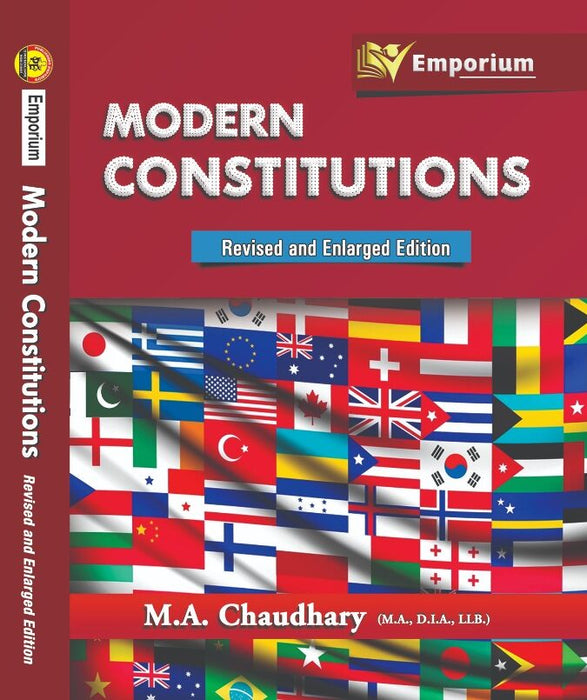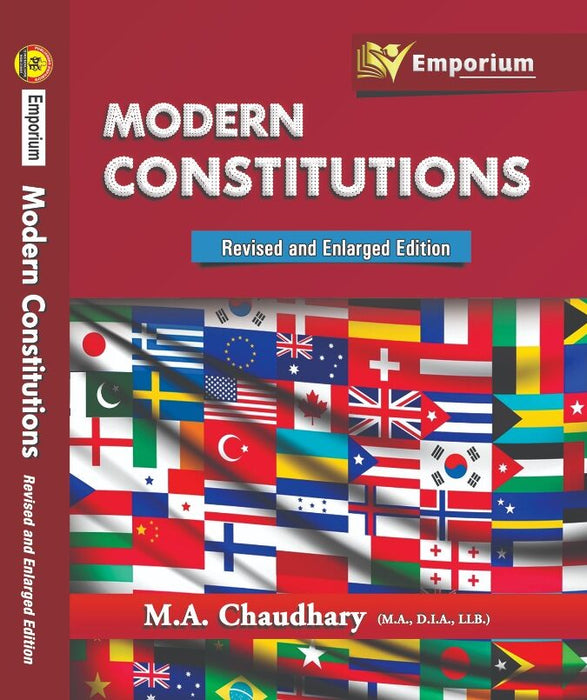Modern Constitutions MA Chaudhry-Emporium
- Publisher: Emporium Publishers
- Availability: In Stock
- SKU: 43499
Rs.780.00
Rs.980.00
Tags: amendment processes , Best Price , Best Selling Books , bill of rights , Book Shop , broad-based legitimacy , constituent assemblies , constitution drafting , constitution ratification , constitution rigidity , constitutional challenges , constitutional design , constitutional effectiveness. , constitutional interpretation , Convenient Shopping , decentralization , democratic principles , federal structures , federalism , fundamental principles , historical context , implementation gaps , international influence , Internet Shop , invalidation of laws , judicial review , legal adaptability , MA Chaudhry-Emporium , Modern Constitutions , national governance , Online Book Shop , ONLINE BOOKS , Online Books Shop , Online Bookshop , political framework , political manipulation , rights and freedoms , rule of law , separation of powers , societal evolution , subnational entities
Modern constitutions are pivotal in shaping the political and legal framework of nations, providing a blueprint for governance, citizen rights, and state responsibilities. These documents reflect the evolution of societies and their legal systems, incorporating elements like democracy, federalism, and the rule of law. "Modern Constitutions" by MA Chaudhry-Emporium delves into the intricate details of contemporary constitutions, highlighting their significance, structure, and impact on global governance.
Key Points
1. Historical Context
Modern constitutions often emerge from significant historical events, such as revolutions or independence movements, which necessitate the creation of a new legal framework.
2. Fundamental Principles
Constitutions typically enshrine core principles such as democracy, the rule of law, separation of powers, and human rights, forming the foundation of modern states.
3. Constitutional Design
The design of a constitution involves choices about the structure of government, including the division of powers among different branches and levels of government.
4. Amendment Processes
Modern constitutions include mechanisms for amendment, allowing for adaptability and evolution in response to changing societal needs and values.
5. Judicial Review
Many contemporary constitutions establish judicial review, empowering courts to interpret the constitution and invalidate laws that contravene constitutional provisions.
6. Federalism and Decentralization
Federal structures and decentralized governance models are common in modern constitutions, aiming to balance power between national and subnational entities.
7. Bill of Rights
A significant feature of many modern constitutions is a bill of rights, outlining the fundamental rights and freedoms guaranteed to all citizens.
8. International Influence
Global trends and international human rights norms often influence the drafting and revision of modern constitutions, promoting a degree of standardization across different nations.
9. Role of Constituent Assemblies
Constituent assemblies, composed of representatives from various sectors of society, play a crucial role in drafting and ratifying modern constitutions, ensuring broad-based legitimacy.
10. Challenges and Criticisms
Despite their importance, modern constitutions face challenges such as rigidity, implementation gaps, and political manipulation, which can undermine their effectiveness and credibility.
In summary, modern constitutions are essential instruments for governing contemporary societies, embedding principles of democracy, justice, and human rights. "Modern Constitutions" by MA Chaudhry-Emporium provides an insightful exploration of these foundational documents, examining their development, design, and ongoing significance in the global context.
════ ⋆★⋆ ═══
Writer ✤ MA Chaudhry
Publishers ✤ Emporium Publishers
























